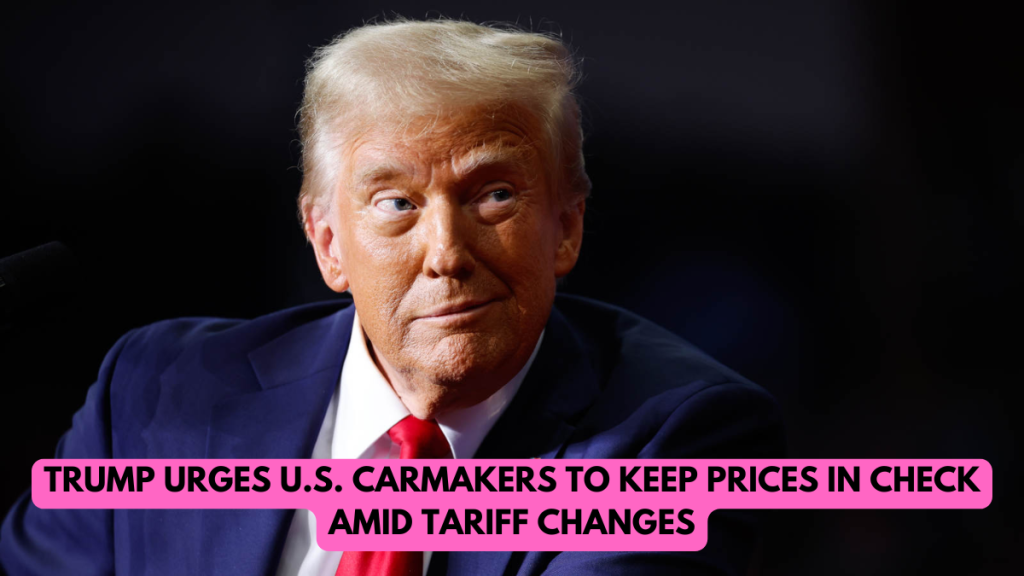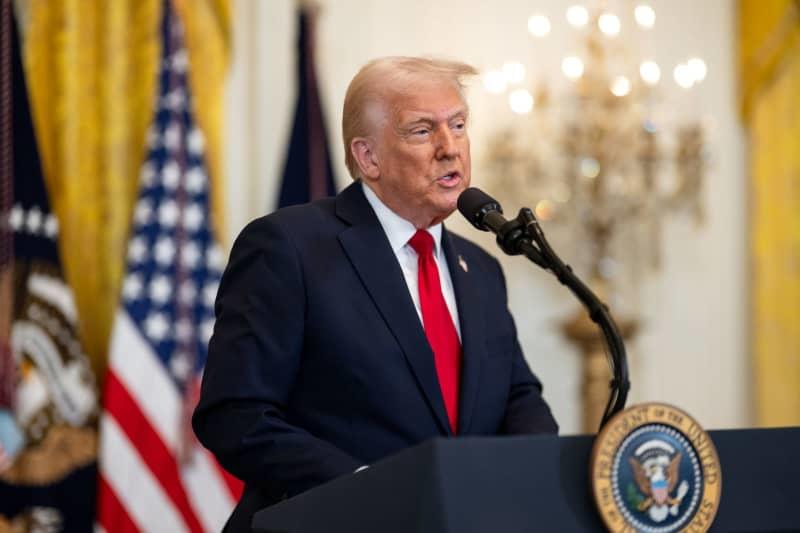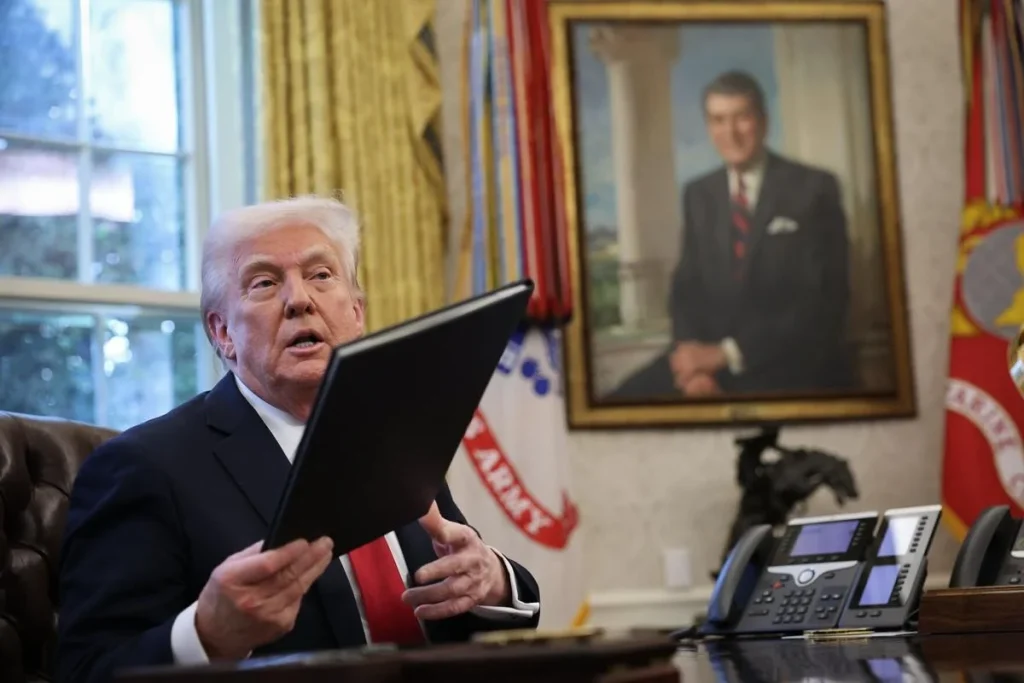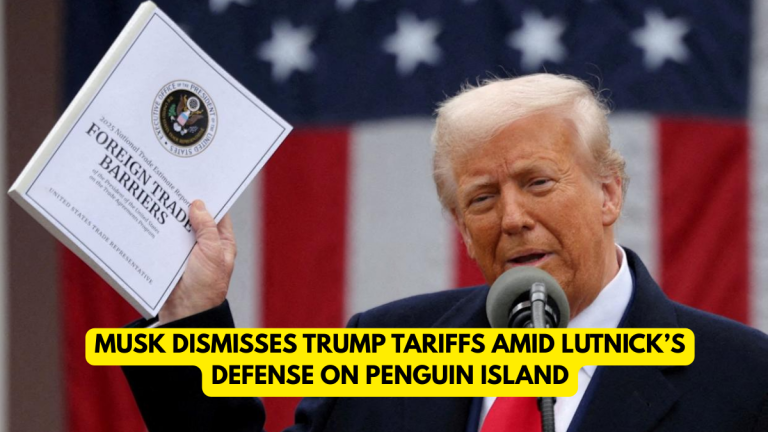
President Donald Trump has issued a stern warning to U.S. automakers, cautioning them against using newly imposed tariffs on imported vehicles and parts as an excuse to hike car prices for consumers. The warning comes after the administration introduced a 25% tariff on all imported vehicles and auto parts, a move aimed at boosting domestic manufacturing but one that experts say could significantly increase the cost of new cars in the United States.
Trump’s Warning to Automakers
During a call with top executives from major automotive companies, President Trump emphasized that the new tariffs were intended to support American workers and domestic production, not to drive up prices for consumers. He urged automakers to absorb the increased costs rather than passing them down to buyers.
“This is about bringing jobs back to America and ensuring that our workers and factories thrive,” Trump said. “Automakers should not use this as an opportunity to raise prices on hardworking Americans.”
Projected Price Increases
Despite Trump’s warning, industry analysts predict that vehicle prices will rise as manufacturers attempt to offset the additional costs. Some estimates suggest that the average price of a new car could increase by anywhere from $5,000 to $10,000 due to the tariffs. Economist Arthur Laffer has warned that the additional costs imposed by the tariffs could add approximately $4,711 to the price of a vehicle (AP News).
Automakers argue that price increases are a direct result of higher production costs, rather than an effort to exploit the situation. Many vehicles assembled in the U.S. still rely on imported components, meaning manufacturers will face rising expenses even if their final assembly remains domestic.
The Automotive Industry’s Response

Several major car manufacturers have responded to the administration’s tariffs and Trump’s warnings. General Motors, Ford, and Stellantis have all indicated that they will work to mitigate the financial impact but cannot entirely avoid passing some of the costs to consumers.
A spokesperson for Ford stated, “While we are committed to keeping our vehicles affordable for American consumers, the reality is that tariffs increase costs across the supply chain, and we must make necessary adjustments.”
Similarly, General Motors emphasized that automakers operate in a globally interconnected industry where raw materials and components often come from international suppliers. “Tariffs impact the entire industry, and while we aim to keep price increases minimal, it is an unavoidable economic factor,” a GM executive said.
Potential Economic Impact
The broader economic implications of the tariffs remain a point of concern. Consumer spending has been increasing, but inflation has also been climbing, leading to volatility in financial markets. Following the announcement of the auto tariffs, the Dow Jones Industrial Average dropped nearly 700 points amid fears of sustained inflation.
Economists caution that the tariffs could create a ripple effect throughout the economy, potentially slowing auto sales and affecting employment within the industry. The automotive sector supports millions of American jobs, from manufacturing to sales and service. A slowdown in consumer demand due to higher prices could put pressure on automakers and dealerships, leading to potential job losses.
Government Justification and Reactions

The White House has defended the tariffs as a necessary step to reduce dependence on foreign supply chains and strengthen domestic manufacturing. A statement from the Office of the U.S. Trade Representative (USTR) reiterated that the administration’s goal is to make the U.S. automotive industry more competitive on a global scale.
“These tariffs are designed to incentivize domestic production, create jobs, and reduce reliance on foreign-made vehicles and parts,” the USTR said in a statement.
However, trade groups and industry organizations have voiced concerns about the move. The American International Automobile Dealers Association (AIADA) warned that higher vehicle costs could dampen demand, ultimately hurting both consumers and businesses.
“The American car buyer will bear the brunt of these tariffs,” AIADA President Cody Lusk said. “Higher costs mean fewer people will be able to afford new cars, which could slow down economic growth and impact jobs across the industry.”
Looking Ahead
With the tariffs set to take effect on April 2, 2025, the coming months will be crucial in determining how automakers adapt and how consumers respond. If car prices rise significantly, the administration could face political pushback, especially in key battleground states where the automotive industry plays a vital role.
As negotiations continue and automakers evaluate their pricing strategies, consumers are advised to stay informed about potential price changes. Those looking to purchase a new vehicle in the near future may want to do so before April, while prices remain unaffected by the new tariffs.
For more details on the government’s trade policies and their potential impact, visit the U.S. Department of Commerce’s website (Commerce.gov) or the National Highway Traffic Safety Administration (NHTSA) for consumer advisories on vehicle purchases.



